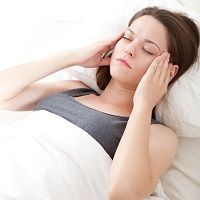Article
The Childhood Experience That Can Lead to Adult Migraines
Author(s):
Childhood abuse, especially emotional, is linked to a greater risk of developing migraine as an adult.

Childhood abuse, especially emotional, is linked to a greater risk of developing migraine as an adult.
History of abuse may be an important factor to consider when treating migraine headaches, according to a recent study. The results are set to be presented at the American Academy of Neurology’s (ANN) 68th Annual Meeting in Vancouver, Canada in April.
“Childhood abuse can have long-lasting effects on health and well-being,” Gretchen Tietjen, MD, from the University of Toledo in Ohio, said in a news release.
The cohort included 14,848 people ages 24 to 34 — 14% of which were diagnosed with migraines.
Participants reported if they had ever been emotionally, physically, or sexually abused in their childhood. Emotional abuse was assessed by asking, “How often did a parent or other adult caregiver say things that really hurt your feelings or made you feel like you were not wanted or loved?” Physical abuse included being kicked, hit with a fist, or thrown on the floor, into a wall, or down stairs. Sexual abuse was forced sexual touching or relations.
- Related: Infants’ Long-Term Health Affected by Delivery Method and Diet
Out of the entire participant pool, 47% had been emotionally abused, 18% were physically abused, and 5% were sexually abused as children.
The data revealed that 61% of patients with migraines had been abused and 49% of those without migraines had been abused. After factoring in age, sex, race, and income, it appears that people who had been abused were 55% more likely to experience migraines.
“Emotional abuse showed the strongest link to increased risk of migraine,” Tietjen continued. People who were emotional abused had a 52% increased risk of experiencing migraine than those who were not abused. When depression and anxiety were factored in, there was a 32% increased risk of migraine.
Physical and sexual abuse, on the other hand, were not tied to a significant increase risk of migraine compared to those who were not abused.
“More research is needed to better understand this relationship between childhood abuse and migraine,” Tietjen concluded. But the findings indicate that childhood abuse may need to be taken into consideration when treating migraine.
Also on MD Magazine >>> Migraine with Aura Increases Risk of Stroke





